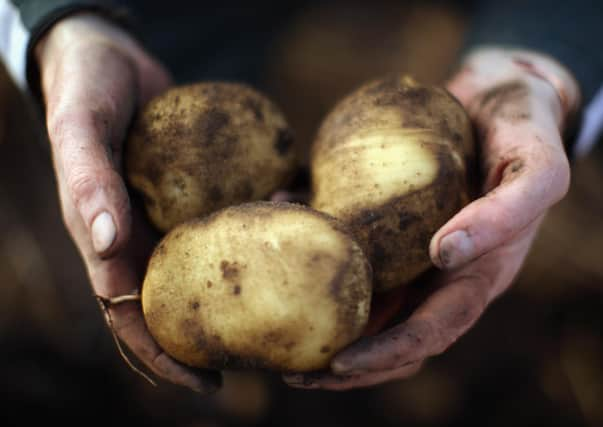Farming: Straight answers are in short supply for potato growers


Whether or not this early experience led to my total inability to ever give a straight answer might be a moot point, but I remember just how difficult it could be to avoid using either of the two answers which would put you out of the game.
The game also highlighted the shortcomings of the sort of closed question which can only be answered in a binary fashion – and it’s a bit disappointing that so many issues in later life are forced into to a polarising ‘Yes’ or ‘No’ answer, leaving little scope for expressing any shades of grey on a topic.
Advertisement
Hide AdAdvertisement
Hide AdThe whole Brexit issue, with the either/or option which eliminated the entire spectrum of views which were held by the population, was a recent example.
More directly relevant to the farming world was the recent vote on the continued operation and levy-gathering powers of the Agricultural and Horticultural Development Board (AHDB) in the horticulture and potato sectors.
Once again there was no middle ground in the vote, no third way which might have given growers the option to retain some of the services delivered by the board – with the poll starkly asking whether the representation should continue or end.
It is here that the similarities with Brexit are quite marked. In the view of many producers, the AHDB had developed into an expensive, top-heavy, self-perpetuating organisation which had divorced itself from the grass-root producers who actually paid for the organisation. (And proposals which were hurriedly launched for major changes in way the AHDB operated – designed to address these gripes – came too late, however.)
So, the yes/no format of the poll allowed little room for nuanced argument or the discussion of which of the AHDB’s roles growers wanted to keep and which they wanted to ditch – and, unsurprisingly, when it came to the crunch, the vote went against the established order.
The parallels with Brexit, however continued and, despite no formal decision as yet from Defra and the devolved administrations who have the final say on this part of the board’s operations, the plug has been swiftly pulled by the AHDB on its work in the potato sector – a move which yanked the rug out from under the feet of the sector’s important research and development work.
While it would be difficult to prove, you can’t help but wonder if this precipitous action was fuelled by a similar level of pique to that exhibited in the tough negotiating stance adopted by the EU when it became clear that the UK was gunning for the hardest of hard Brexits.
And, at last week’s Potatoes in Practice event, the almost universal finding of the surveys and Twitter polls which were released, to say nothing of the opinions voiced by those at the event, was the fact that growers had realised that there was a need for some sort of producer organisation to be set up to ensure that the country’s cutting-edge science was translated into applied research which could be utilised on-farm – and that some means of financing this would need to be set up.
Advertisement
Hide AdAdvertisement
Hide AdWhile it was made plain that any financial contribution would be much smaller than that paid to the AHDB (and that the use of the term ‘levy’, would prove toxic in any discussions with the industry) it has become clear that real leadership will be required to pull the strings together to ensure that Scotland – and the rest of the UK – maintains its position at the forefront of potato production and potato science.
For while commercial interests might continue to see specific areas financed, in order to avoid the fragmentation and duplication which such an approach could entail, some overarching organisation will be needed.
The James Hutton Institute’s Professor Lesley Torrance outlined the concept of a Potato Innovation and Translation Hub, centred in Scotland, to fulfil just such a role and bring all sectors of the industry together.
And while everything points towards a binary ‘Yes’ being be the only sensible answer from the sector, which relies heavily on scientific services such as the blight and aphid forecasts along with up-to-the-minute research and development, a nuanced discussion will be required to ensure the funding is there to support it.
Comments
Want to join the conversation? Please or to comment on this article.